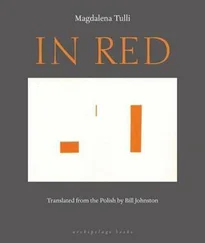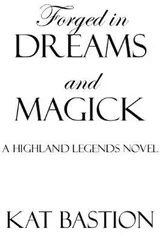The naming of things never brought anyone happiness. Yet despite this, names circulate without ceasing, ever more densely and feverishly. For what has not been named drifts away on the waves of the river. Everything takes flight. Events do not attach to words and do not need them in order to flow. They roll through the city, stirring up shoals of glittering definitions, describing every moment in various ways. What is supposed to flow, flows, while definitions remain in place, rocking on the waves, tied down with ropes, round and brightly colored, like buoys on the river. The inhabitants of the city use them to mark the course of events in order to understand them better. This is a necessity: Events by their nature are incomprehensible, with a tendency to overflow in all directions and efface their borders. Love requires white veils, black tuxedos and beribboned limousines, but at times it must make do with a grille in the visiting room. Sleep requires a room and a bed but in extremity it can manage with a bench in a station waiting room or even a corner of the sidewalk, thus becoming something that can be confused with fainting, drunkenness or death. It is precisely because of this that navigational signs — the buoys of words — are so essential. It is they that make it possible to differentiate, to separate out that which would be jumbled up. One beside the other, they bob up and down on the waves of events, obscuring them entirely. It is not surprising that in the end their movement is taken for the waves themselves, and that descriptions conceal objects.
Even events themselves are not needed to set flowing that which is meant to flow. In fact only words are essential. Thus on a rainy day an incautious pedestrian dies at a busy intersection and a drunk driver causes a fatal accident, from one moment to another becoming a criminal. The family, plunged into sorrow, bids farewell forever to a father and grandfather, a teacher of many years, while children carry their ink-stained backpacks to school and rejoice at the fact that their test has been canceled. The police escort the culprit from the lockup to the courtroom; at the same time a taxicab is taking a woman in labor in the opposite direction to the maternity clinic. If someone should desire a telephone connection between the courthouse and the delivery room it is technically feasible, but the gaudy, hollow buoys of words that mark roles and the course of matters render such a telephone a needless waste of time, a caprice and even a suspicious subterfuge, a trick employed in bad faith. The words criminal and escort fix figures in their roles, in freeze frame. Names delimit the boundaries of what is possible. On a different day, another person dies at the same intersection; in the courtroom, another trial begins (the escort and the arrestee have the same journey to make, though the section numbers from the criminal code cited in the charge sheet are different). A woman in labor rides to the maternity clinic in a taxicab; perhaps rain is falling again; the same children carry their backpacks to school and, on the way, are gradually imbued with the mournfulness of grammar and of exercises involving trains. The victims of accidents, the police officers, criminals, schoolchildren, the women in labor and the cab drivers have no choice: They have to make their way in the direction laid out by the street, to enter and exit through doors, and to do so during the hours they are open. They never come into the world or die, except in connection with the circumstances that precede these events and then follow them; they are utterly bound by rules determined by the relations between words. Nothing will occur that cannot be named, and everything that can be named will sooner or later occur.
Events do not stop even for a minute in their course. They carve out bends and uncover islands. The flowing water sculpts the banks — the only memento it leaves behind. Where the greatest number of accidents occurred an underground passageway has been constructed. Where things were bought and sold marketplaces have sprung up; where thieves gathered a police station has been built. Even soccer matches and loud concerts leave behind colored marks on the walls. Everywhere there is a multitude of signs aiding memory, and telling gaps where the signs have been removed or destroyed.
Calling things by their names helps only briefly. Everything named also falls into oblivion, because tomorrow each word will be needed again for something else. Events for which words escape everyone will fall into oblivion first. Faded definitions are like lost deposit slips — the recollections to which they refer can no longer be retrieved. Oblivion wipes away gestures and grimaces; it wipes away chased clouds, raindrops on windows, gusts of wind. Inhabitants of the city try to create new words that will be more convenient than the old ones — but they try in vain. The new words are no improvement, and just like the old ones they obey no one’s will. The city of changes was created by memory in search of needles in haystacks. It is utterly dependent on recollections, those castles in the sand washed away by tidewaters. Harried by the waves of oblivion, it requires inhabitants that bear within themselves thoughts, questions and desires in which city landscapes are embedded — so that the city might remember itself.
The eyes of passersby gaze every day upon underground passageways, marketplaces and police stations. They gaze upon inscriptions on walls and in stairwells. The hand resting on the banister feels beneath its fingers the old chipped enamel. It is in this way that everyday thoughts are recovered. These are for the most part small and hard morning thoughts that contain the tiniest possible questions or no questions whatsoever. They hide in clothing, in objects, in furniture, differently from evening thoughts, whose sharp little needles are stuck beneath skulls for memory’s sake. The walls of stairwells are marked by streaks and stains, each one from something different, some already very old. Certain thoughts for which there was no room elsewhere can be so completely absorbed into the shape of a stain that one encounters them every time one climbs or descends the stairs. Thanks to this they endure, saved for some time yet from oblivion. Later it transpires that the same stain has come to mean something else. The language of stains is impoverished and slipshod. The same shapes have to convey contradictory meanings. But these meanings themselves are so slipshod and impoverished that the shapes of the stains seem only too good for them.
Though this is not a rule, more significant thoughts may take on the shape of a large object, for instance a tram standing at a stop. At such times they drive off with the tram, leaving memory with the impossible task of searching for them. And it is only this task that keeps together the round billion of dark red bricks. The city of changes, constructed by memory and destroyed by oblivion, is a city of death.
The tide of death spares only the stone bricklayers and foundrymen in their stone clothing, gazing at the traffic with stone eyes from their alcoves. For the kind of life they have within themselves is not subject to destruction even in floods, fires or the demolition of buildings. A broken-off stone head can continue to exist; it is no more motionless than when it was attached to a neck. An isolated hand remains as inactive as when fastened to a forearm. An index finger remains the same even at the bottom of the river, half-buried in mud and entwined with algae. Even crushed stone spread on roads has its weight and volume and its position in space.
The life of stones is entirely free of coercion. When they lose support they fall down. Having fallen they lie there. True, they have no influence over the form they are given; but they accept it with absolute indifference. With the same indifference they endure or crumble. Whatever happens they will never add anything from themselves. They never contribute the slightest effort to any undertaking. They are never pleased and never worried, nor can they ever be persuaded of anything. They are imperturbable, because they are not afraid of suffering. Light-bulbs too do not weep when they are switched off; cables do not attempt to avoid short circuits and firewood does not flee from the flames.
Читать дальше












